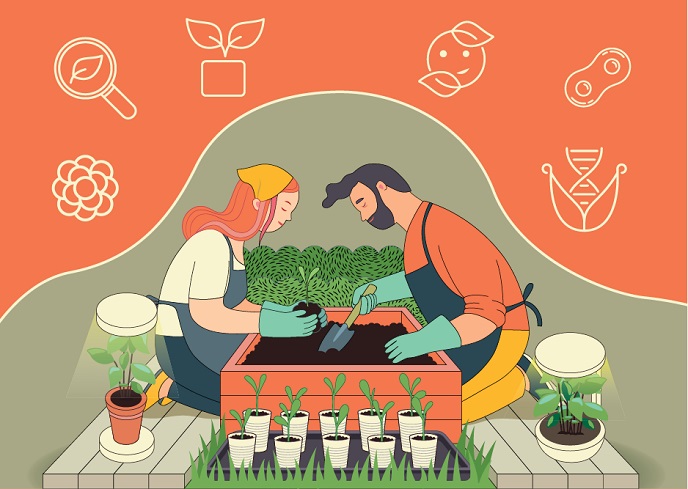Plant health: Keeping plants healthy while protecting the environment
Plant health is a broad term. It covers protecting plants and crops from deadly pests and disease, mitigating the adverse effects of climate change on plants’ ecosystems, and transforming the agricultural sector to feed the world’s growing population. In 2016, the United Nations acknowledged plant health as one of the most pressing concerns of our time, declaring 2020 as the International Year of Plant Health. Importantly, sustainability is at the centre of all efforts to improve plant health: fighting pests and increasing crop yield must be achieved without putting further strain on the environment through the improper use of pesticides. Avoiding hazardous chemicals when addressing pests protects the environment as well as pollinators, natural pest enemies, beneficial organisms, and the people and animals who depend on plants.
Towards sustainable and eco-friendly protection of plants
The European Commission’s Farm to Fork Strategy, a fundamental component of the European Green Deal, capitalises on the importance of ensuring sustainability across the food value chain. Taking a holistic approach, the strategy highlights the interconnected nature of food production and aims to keep plants healthy while reducing the impact of food systems on the environment, which goes hand in hand with guaranteeing fair economic returns for farmers and boosting public health and innovation. With sustainable food production as a key priority, the strategy sets targets to significantly reduce the use and risk of chemical pesticides and fertilisers as well as antimicrobials. It also proposes a revision of the Sustainable Use of Pesticides Directive 2009/128/EC that aims to achieve a sustainable use of plant protection products in the EU, for example by promoting the use of integrated pest management and other non-chemical alternatives to pesticides.
Pioneering EU-funded research leading the way
Following the first edition of the Results Pack on Plant Health, this new edition introduces 9 new projects and 3 updates to projects from the first edition. Under the XF-ACTORS project, researchers gained significant insights into the European origin of the dangerous plant bacteria, Xylella fastidiosa (Xf). Focusing on Fusarium oxysporum, another formidable parasite, FOUNDATION studied an ancestral land plant to understand how the parasite has evolved and find novel control strategies. The Asterix project developed an autonomous robot named AX-1 (formerly Asterix) that reduces the use of pesticides while simultaneously boosting farm profitability. Also taking a technological approach to improving plant health, GREENPATROL developed a new robotic system enabled by the Galileo navigation satellite system to autonomously detect and treat pests in greenhouse crops. As an alternative to pesticides, the ChemPrime project engaged with agri-tech companies to facilitate the adoption of a crop protection strategy based on chemical plant priming agents. Lipofabrik developed and patented two products that are key to meeting the low toxicity needs of the agricultural sector. Several projects adopted a crop-specific focus. MUSA developed more sustainable alternatives for protecting banana crops, while TomRes tested and optimised sustainable crop management strategies for tomatoes. The RiZeSisT project investigated alternatives to chemical methods for controlling sheath blight, and NEURICE, also looking at rice, introduced genetic variation in rice crops to address rice sensitivity to salinity and resistance to pest infestation. Recognising the importance of quick, accurate and reliable detection and identification of plant pests, the VALITEST project strived to enhance the reliability of tests used for these purposes in Europe. INNOSETA established a thematic network on spraying equipment, training and advising to close the gap between the available new high-end crop protection solutions and European farmers.



